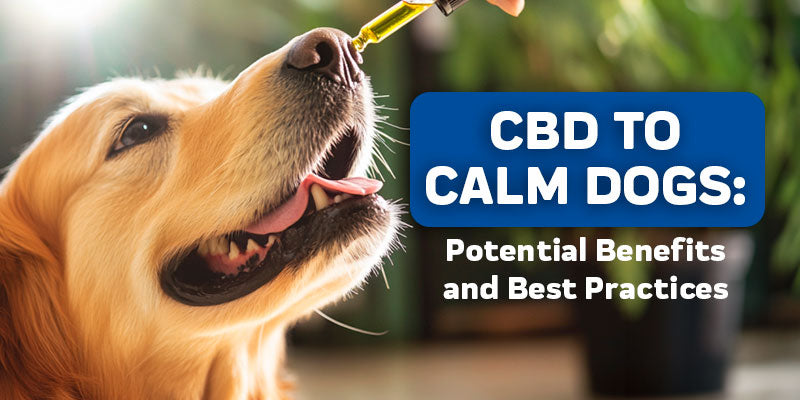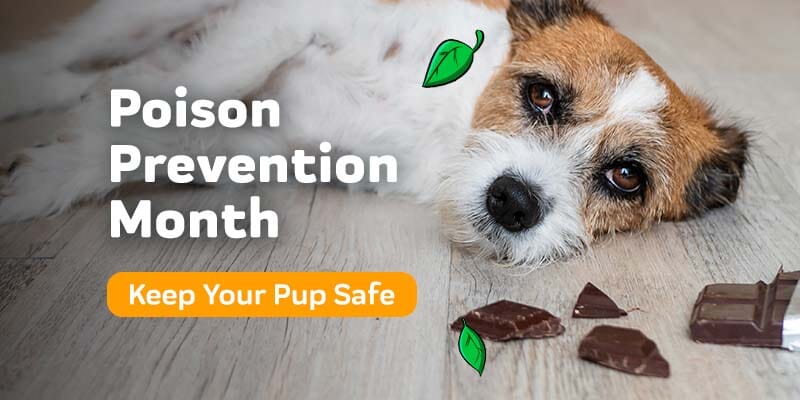
From the smallest of dogs to the largest of canines, dogs love to eat, no matter their physical size. In American society, food is something that has a very social aura to it, and this holds true for dog food, too. Food has become something that brings comfort, enjoyment, and ease to pets and people alike. Dogs are like us in the sense that they eat a lot of food during the day.
From dog bones and dry food to puppy treats and wet food, canines have big appetites. Since food is a major component of your dog's everyday life, it can be disrupting when your dog can no longer eat all of a sudden. While there are many reasons that cause dogs to have smaller appetites and more difficulty eating, our main focus for today is going to be acid reflux.
The situation affects each dog differently, and the actual side effects of acid reflux will depend on your dog as an individual, but there are many common similarities between dogs and acid reflux. Understanding what is happening with your dog's body and appetite comes down to comprehending acid reflux in general.
Acid Reflux in Dogs: What is Acid Reflux?
Also known as gastroesophageal reflux disease, canine acid reflux is a condition that is far more common than you may think! So if you find out that your dog has acid reflux, try your very best to not worry too much. Essentially, acid reflux happens when a combination of stomach acid and other internal fluids make their way out of the digestive tract of your dog.
Usually exiting the stomach by way of the sphincter muscle, your dog's esophagus becomes filled with the stomach acid and other fluids we just mentioned. You can think of acid reflux as regurgitating what is in your dog's stomach. It is similar to a midway point between stomach acid staying in the digestive tract and actually vomiting. Acid reflux is not a fatal condition, and it usually passes on its own, but the healing process depends on the cause of your dog's acid reflux.
Can Dogs Have Acid Reflux?

Dogs can certainly have acid reflux. If you have ever had it yourself, you know just how uncomfortable it can be. The symptoms of acid reflux are most notably comprised of a burning sensation in the throat and a mild feeling of heartburn. In fact, many people might say that acid reflux feels just like heartburn, but in the throat rather than in the chest.
Believe it or not, it can be really hard to determine the root cause of your dog's acid reflux. Sometimes, acid reflux is prompted by an internal force, whereas other instances of acid reflux come to life as a result of external, environmentally-based factors. Very commonly, cases of acid reflux in dogs is a result of a combination of the two.
So if you are having trouble determining what is causing your dog's acid reflux, try piecing together a few possible reasons, rather than searching for just one. The chances are that your dog's acid reflux symptoms are stemming from more than one cause.
Sometimes, something as simple as throwing up or eating too quickly can cause acid reflux in dogs. Other causes of acid reflux can be more serious. Prolonged cases of obesity can prompt acid reflux to take place, and unexpected health concerns, such as hiatal hernias, can result in acid reflux as a symptom, too.
Using Hiatal hernias as an example, some causes of acid reflux are situations that your dog is born with, so there is always a chance that acid reflux is something that your dog will have to learn to deal with for his or her entire lifetime. But thankfully, acid reflux is not a fatal condition, nor does it complicate life to the point of compromising your pet's life expectancy.
While acid reflux is not a life-threatening condition, it is still a frustrating thing for your dog to deal with, and as pet owners, it is in our nature to seek out resolutions for unfortunate experiences that our dogs are facing. While the causes of acid reflux tend to be unique from one dog to the next, you can still take action and make the symptoms easier for your dog. If you are wondering, “What can I give my dog for acid reflux?” then we’ve got the answers for you!
What Can I Give My Dog for Acid Reflux?
Treating acid reflux in dogs is possible. In fact, most of the time, acid reflux is curable, too. There are many ways to eliminate the unwanted and uncomfortable symptoms of acid reflux in dogs. Let’s talk about some of them!
How to Treat Acid Reflux in Dogs

A lot of the treatment options for acid reflux in dogs comes down to environment and lifestyle. Veterinarians are likely going to suggest that you take a look at the food that you feed to your dog on a regular basis. When your dog is eating foods that cause symptoms of acid reflux to flare up, the problem will continue to persist without any promise of getting better.
Improving acid reflux problems in dogs comes down to attacking the problem at the source, rather than simply treating the side effects your dog is dealing with as a result of the acid reflux. The best diet for dogs with acid reflux is one in which the nutrients are low in fat and low in protein. It is better to feed your dog smaller meals and snacks over a more frequent timeframe, rather than feeding your pet two or three massive meals in one day. The purpose behind lowering the fat and the protein consumption of your dog comes down to how fat and protein each behaves in the body.
When there is a lot of protein in your dog's body, there is a heightened amount of gastric acid, and it needs to go somewhere. So, sometimes the gastric acid leaves the body through the esophagus and the throat, leading to acid reflux episodes. Similarly, fat increases the possibility of acid reflux in dogs, too. Fat makes the muscles between your dog's esophagus and stomach much weaker than usual.
How Dogs are Diagnosed with Acid Reflux
Acid reflux is diagnosed by professionals, and most of the time, the procedure will be conducted by your dog’s veterinarian. However, you may have to take your pup to another pet care provider on the off chance that your dog’s vet does not have the means to carry out the procedure.
The procedure used for diagnosing acid reflux in dogs is called an esophagoscopy. Essentially what happens is that the medical professionals take a camera that is designed to go inside your dog and take a look around at the situation. When the camera scopes out your dog's internal organs, it focuses on the lining of your dog's esophagus.
Using the camera, the vet looks around at the membrane of your pup's esophagus. The medical professionals are looking for one of two things. The two biggest signs that indicate acid reflux in dogs are cases of active bleeding in the esophagus as well as unnatural and unexpected changes in the mucosal membrane of your dog's esophagus.
Sometimes, an esophagoscopy is not possible. All dogs are different and some pups might not be cleared for the procedure. But rare situations like this are the reason why other tests exist for the purpose of diagnosing acid reflux in dogs.
A few examples of alternative ways that veterinarians test for acid reflux in dogs are...
- A biochemical profile
- A chest X-ray
- A complete blood count
- An esophagram
- A fluoroscopy
- A urinalysis
Usually, the most common alternative to an esophagoscopy is fluoroscopy. In this scenario, the veterinarian can follow the route of barium as it traverses through your dog's throat and eventually makes it to the esophagus of your pet. Tests that are used for the purpose of diagnosing acid reflux in your dog can also help determine what is directly causing your dog's acid reflux.
Sometimes, the cause is something external that made its way into your dog's system, such as a toy or something your dog should not have swallowed. Other times, the acid reflux is a result of a tumor in the esophagus. Whether the tumor is malignant or benign depends on the specifics of the situation, but your vet will discuss the next steps with you, should a tumor be the cause of your dog's acid reflux.
Diagnostic tests can also tell you if your dog has a disease that carries acid reflux as a side effect. These are usually diseases of the mouth or the throat. Also, another possibility is that your dog has something called megaesophagus, which is basically when the esophagus is slightly malfunctioning. Instead of swallowing food with ease, megaesophagus is denoted by irregular contractions of the muscles as your dog chews food and then swallows.
Acid Reflux Symptoms in Dogs
Dog acid reflux symptoms can be different depending on the dog’s particular situation. The most obvious sign of acid reflux in dogs is a burning sensation in the throat, which veterinarians can usually pinpoint by taking a light and looking at your dog’s throat. But this is not the only symptom of acid reflux.
Other acid reflux symptoms in dogs include…

- Little to no appetite
- Unable to keep food down
- Rapid weight loss
- Throwing up often
- Choking with and without food
- High body temperatures
- Constant coughing
- Moaning
- Whimpering
- Exhaustion
- Fatigue
- Lethargy
- Unexplainable and unusual drooling
- Less capable of eating full meals
What Can I Give My Dog for Acid Reflux
We talked about a few options for acid reflux treatment already. The main goal of all acid reflux treatment options is to determine the root cause of the problem and then address it head-on, but that can be difficult in some situations.
When the acid reflux is being caused solely by internal factors, it is not as effective to adjust the external variables, such as the food your dog eats or the environment in which your dog spends a lot of time. Doing so only works when those external factors are causing the problem at hand.
If you have tried to treat canine acid reflux by changing parts of your pup’s lifestyle, but it has been to no avail, then there is a great chance that the problem is internal. Instead of focusing on your dog’s surroundings, look inward and focus on your dog when treating acid reflux. When the problems are within your dog’s digestive tract, the most popular way of treating acid reflux in dogs is by administering prescription medication to your dog.
You might even find that this is your veterinarian’s go-to advice when talking about how to rid your dogs of their acid reflux symptoms. The most common group of medications for dogs with acid reflux are known as gastric acid suppressors. As though the name does not give it away, these medications suppress the overactivity regarding gastric acid in your cat's body, which is being caused by the acid reflux.
The two most common types of gastric acid suppressors are...
- Histamine type-2 receptor antagonists, or H2RAs
- Proton-pump inhibitors, or PPIs
Two examples of commonly prescribed histamine type-2 receptor antagonists are...
- Famotidine
- Ranitidine
Three examples of proton-pump inhibitors are...
- Esomeprazole
- Omeprazole
- Pantoprazole
Not all dogs take well to man-made prescription medications. On a similar note, not every pet owner wants to give artificial medicine to their dog, even if it means treating the problem their pet is facing. We understand how difficult it can be to have to break a moral boundary for the sake of helping your pup, but we’re happy to let you know that you can help your acid reflux dog without having to compromise on your preference for all-natural supplements!
When looking into acid reflux treatment options for dogs, turn your attention to cannabidiol oil for pets. Also known as CBD, cannabidiol is a phytocannabinoid found in hemp plants and cannabis plants. Now, before we get too carried away by the endless benefits of CBD for acid reflux, let us clarify a common misconception that many people associate with cannabidiol.
Natural Remedy for Acid Reflux in Dogs
Since CBD can stem from cannabis plants, there is an underlying stigma tied to using cannabidiol for pets. The assumption is that cannabidiol for dogs is toxic to their systems because it is derived from cannabis, but this is misguided. Just because CBD is a by-product of cannabis does not mean that it automatically causes the feeling of being high.
In fact, cannabidiol is not capable of making anyone feel like they are high, let alone dogs. We are here to let you know that there is absolutely nothing psychoactive about CBD for dogs with acid reflux. Here is the secret that completely unravels the notion that cannabidiol is psychotropic, meaning it alters the mind and makes the body feel differently.

Cannabidiol is not psychoactive because it is a completely different phytocannabinoid that causes the mind-altering effects so often attributed to cannabis as a whole. It is not CBD that is responsible for those effects, but rather, the phytocannabinoid called tetrahydrocannabinol that causes psychotropic feelings in whoever consumes THC.
Acid reflux is a very uncomfortable situation for dogs. Although there are many different ways of treating acid reflux in dogs, the discomfort might still be present for a while after the problem has been addressed. That’s where CBD for pets with acid reflux comes into the picture. If you think that your dog could use some relief from the painful symptoms associated with acid reflux, then consider purchasing CBD oil for your dog with acid reflux! Please do not that CBD for dogs is not a cure for acid reflux, it will only help manage the symptoms associated with it!
So, don’t worry about your dog getting high from CBD because it quite literally impossible, especially when the products are labeled as CBD for dogs. In order to companies to market their items as CBD products, there cannot be more than 0.03% of THC in the full-spectrum CBD oil. When THC is present in such a small amount, it actually enhances the calming and medicinal effects of CBD, as explained by the entourage effect.
Can CBD Oil Help Dogs with Acid Reflux?
Cannabidiol oil can help dogs with acid reflux to handle their situation in a more comfortable way. Known for its healing properties, cannabidiol provides a soothing and relaxing sensation for your dog with acid reflux. CBD from Innovet is the perfect supplement for dogs suffering from acid reflux.
We have such a wide variety of cannabidiol products that we are certain your dog will find comfort in one of our many CBD options. From CBD oil and doggy chews to cannabidiol dog treats and lotion that you can apply to your dog’s skin, there is something for every dog out there! If you have any questions, or you would like help selecting the right CBD product for your dog, feel free to reach out to us! We are happy to help your dog with acid reflux.
Sources:
Acid Reflux in DogsAcid Reflux in Dogs
Gastro-oesophageal reflux disease in 20 dogs
Gastroesophageal reflux in anesthetized
Esophagitis in Small Animals
















